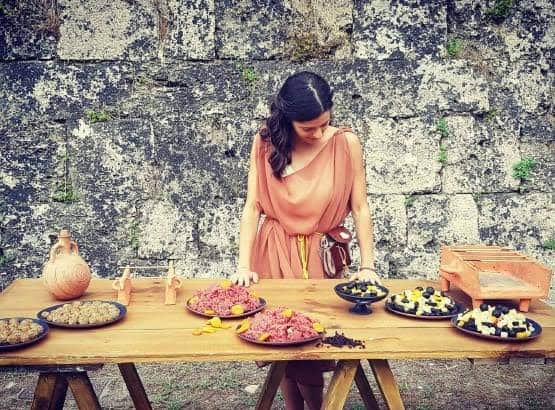
Ancient Greece harbours many intriguing aspects, and one of them is about how the Ancient Greeks ate their meals. They had a rule: never eat alone. They believed that eating alone was like acting like animals, according to Plutarch.
Plutarch was a Greek historian and philosopher who lived during the 1st and 2nd centuries AD. He was born in Chaeronea, Greece, around 46 AD, and became one of the most influential writers of his time.
To eat alone does not mean that he is having a meal, but that he is filling his stomach like animals.
"To eat alone does not mean that he is having a meal, but that he is filling his stomach like animals," Plutarch said.
So yes, Plutarch held a strong stance against eating alone. Rather than dining solo and behaving like animals, he instead stressed the importance of communal dining for human beings. Plutarch saw mealtime as more than just a time to consume food; it was an opportunity for communication, bonding, and sharing experiences with others.
In his writings, Plutarch highlighted the social and moral significance of eating together, suggesting that sharing meals fostered stronger relationships and a sense of community among people. He viewed communal dining as a reflection of human civility and social harmony, in comparison with eating alone, which he viewed as animalistic.
Plutarch's stance on eating alone aligns with the broader cultural values of ancient Greek society, as it does with the values of modern Greek society today, which place a high emphasis on social interaction, hospitality, and communal activities. By promoting the practice of dining together, Plutarch reinforced the importance of human connection and solidarity in fostering a cohesive and virtuous community.
So, Ancient Greek always ate with others, making mealtime a special time for talking and being with family and friends.
In Ancient Greece, they loved throwing big parties called banquets. These weren't just about eating; they were about sharing and having fun together. Friends would bring food or money to help out. They called them "fundraisers" or "dinner of sparks" because everyone contributed to make these big feasts happen.
The Ancient Greek’s favourite kind of party was called a symposion (symposium). It had two parts: first, they ate a little bit, and then they drank a lot. Before they started drinking, they poured drinks for their gods, like Dionysus, the ancient Greek God of wine and festivity, to give thanks for the good times ahead. After eating and drinking their fill, the Ancient Greeks would then play games and enjoy entertainment such as dancing and music.
But these parties weren't just for rich people. Everyone could join in on the fun. Even if it wasn't a fancy party, families still got together for meals during special times. These gatherings weren't as grand, but they were just as important for bringing people and families together.
Beyond mere sustenance, communal dining rituals in ancient Greece embodied the essence of human connection and social cohesion. For the ancient Greeks, eating together wasn't just about food; it was about being together. This tradition of sharing meals has prevailed and influenced how Greeks celebrate and eat together today. It reminds us that mealtime isn't just about filling our stomachs; it's about filling our hearts with good company and shared experiences.
Read also Pearl Island: Chios to Welcome its First Luxury Wellness Retreat